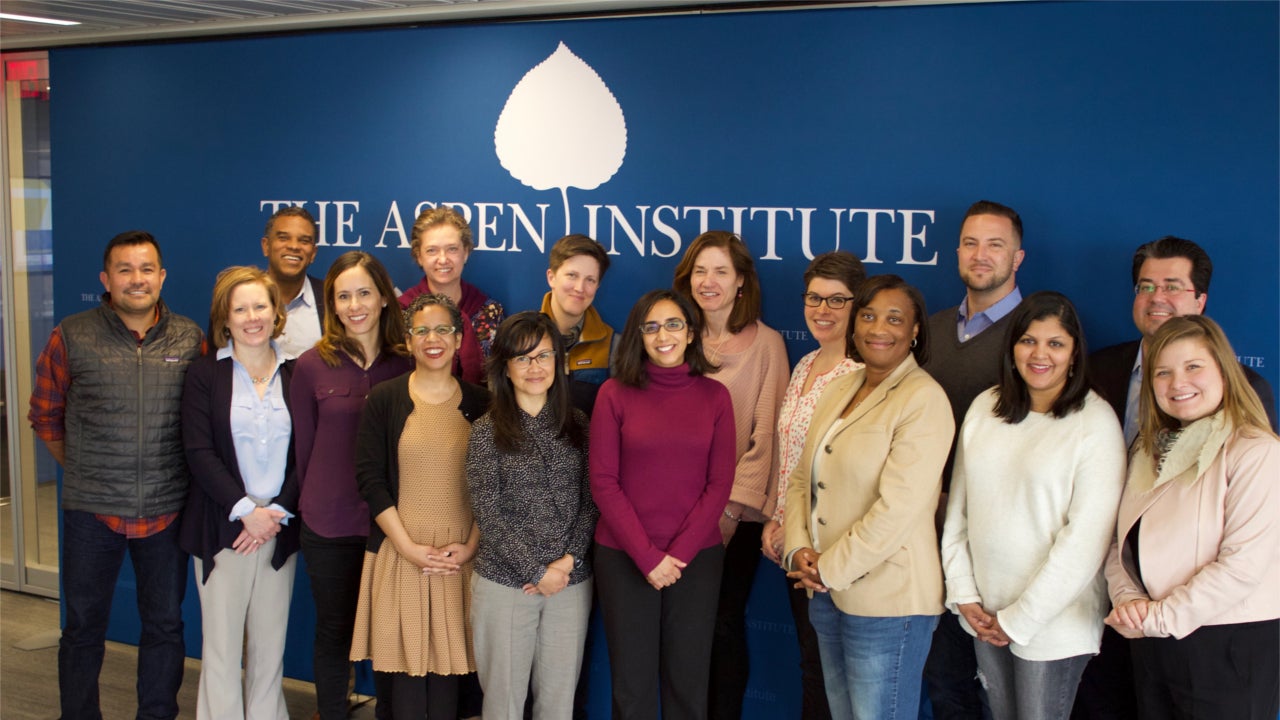Job Quality Fellow, Class of 2017-18
Principal and Owner, JF Riggenbach, LLC

How have your experiences in your local community influenced how you think about job quality?
As in many rural communities across the country, Central Wisconsin has long focused its public investments on a single industry. For decades, Wisconsin Rapids was home to Consolidated Papers, Inc., once one of the largest paper manufacturers in North America. The business provided family-sustaining jobs to local residents and created a prevailing narrative across the community that those who worked hard could access quality jobs. We also believed the industry would maintain strong community ties and sustain its investments in our cities and towns through taxes and philanthropy.
As we experienced, no economy is safe from global economic changes. Since the sale of Consolidated Papers in 2000 and subsequent mill closures, household incomes in Wisconsin Rapids have decreased by 25 percent. While pockets of quality jobs still exist, the decline in overall income has impacted our cities and towns. Some schools have seen the proportion of students eligible for free or reduced-price lunch double, and out-migration is projected to grow through 2035. When quality jobs and skilled workers leave a community, it rocks the confidence and trust of the entire workforce, impacts remaining employers’ ability to find workers, and results in challenging fiscal environments for our public infrastructure and education systems.
I have learned that a job quality strategy should include ways for business and community leaders to collaborate to support strong local economies and healthy communities. It should include a diverse set of approaches that prioritize the needs of locally owned businesses and businesses committed to ensuring the longevity of their good jobs. A job quality strategy should also address how the community shapes its investment policies to ensure our best employers have the resources and workers they need to thrive and expand quality jobs. When we invest in each other, we build wealth and strong communities.
Can you provide examples of your work related to job quality?
As an independent consultant, I partner with organizations across the country focused on expanding access to quality jobs in their communities. My partners take varying approaches to job quality, including working directly with businesses to improve workforce and operational practices, preparing workers to connect to and advance in quality jobs, and promoting employee engagement and worker ownership across small businesses.
For instance, I am working with the Wisconsin Regional Training Partnership (WTRP)/BIG STEP to expand its approach to new industry sectors and communities. WRTP/BIG STEP is an industry-led training organization focused primarily on the manufacturing and construction sectors. What sets WRTP/BIG STEP apart is its commitment to preparing community residents for good jobs. Member businesses offer family-sustaining wages, invest in worker training, and develop systems for workers to contribute feedback and ideas. At the same time, WRTP/BIG STEP supports member businesses to implement workplace practices that not only benefit workers, but also increase business productivity. As an example, staff have worked with manufacturers to institute pay-for-skill strategies that pay workers more as they cross-train on new machines and build news skills and knowledge. We’re in a pivotal moment in which the labor market is tightening, and businesses across industries are finding it more challenging to attract and retain workers. This presents a great opportunity to expand WRTP/BIG STEP’s efforts to industries such as healthcare and utilities.
I also work with businesses that promote employee share ownership strategies. Through these strategies, workers may participate in an Employee Stock Ownership Plan (ESOP), be members of a worker cooperative, or hold another form of business equity. Employee share ownership strategies transform workers into owners and help build wealth, giving workers a stake in our growing economy. In rural regions like mine, the combination of employee engagement and employee share ownership strategies may be the key to growing and retaining wealth and talent. Not only are employers eager for committed and skilled workers, but many of our small business and farm owners are seeking to retire. Selling a business to one’s employees can leave a legacy for workers and the community.
How do you envision success in this work?
No matter if we are machinists, farmers, small business owners, or CEOs, our job is a large part of our identity. People want to feel valued, and a job is often the first thing we turn to when we describe our contribution to society. A good job ensures people can provide for their loved ones, save for retirement, and enjoy life.
Success in my work means building trust between employers and employees, as well as building commitments between businesses and communities. It can be observed in how a business engages its workforce to actively participate in the company’s results and share in its success. It is about shared investments and shared prosperity.
Describe the experience and perspective you bring to the Job Quality Fellowship.
Prior to starting my own organization, I worked in the workforce development field for 17 years, both in rural and urban communities. My experience working directly with businesses through philanthropy, higher education, and the public sector gives me a broad understanding of resources and strategies meant to connect skilled workers with good jobs.
My experience has taught me that the workforce development field has an important role to play in improving job quality. Workforce service providers are positioned to have conversations with businesses that have higher than average turnover, or whose workers report workplace challenges. Service providers have an opportunity to broaden their role beyond skills development, and embrace the goal of increasing economic opportunity for the workers and businesses they serve. I’m interested in how we can create a new narrative that demonstrates to workforce professionals that focusing on job quality isn’t about flipping what you do, but about doing what you do better.
What do you hope to learn and achieve through the Job Quality Fellowship?
I am eager to see how the Fellowship shapes the larger conversation about jobs in our country, how we invest in employers, support workers to have successful careers, and realize stronger communities. Improving jobs is not a short-term proposition. I am most inspired by the group’s thoughtful approach to how short-term opportunities provided in today’s tight labor market can contribute to a thoughtful approach to long-term improvements in job quality. Knowing that jobs will continue to change, I hope we can help create more sustainable strategies so that workers of all types can benefit from good jobs long into the future.
Share now
Tweet “When we invest in each other, we build wealth and strong communities.” @JennyRiggenbach
Tweet “Success in my work means building trust between employers and employees, as well as building commitments between businesses and communities.” @JennyRiggenbach
Tweet “Knowing that jobs will continue to change, I hope we can help create more sustainable strategies so that workers of all types can benefit from good jobs long into the future.” @JennyRiggenbach
Keep in touch
Learn how the Aspen Institute Economic Opportunities Program is helping low- and moderate-income Americans connect to and thrive in a changing economy. Follow us on social media and join our mailing list to stay up-to-date on publications, blog posts, and other announcements.
We are grateful to the Ford Foundation and The Prudential Foundation for their support of this work.
